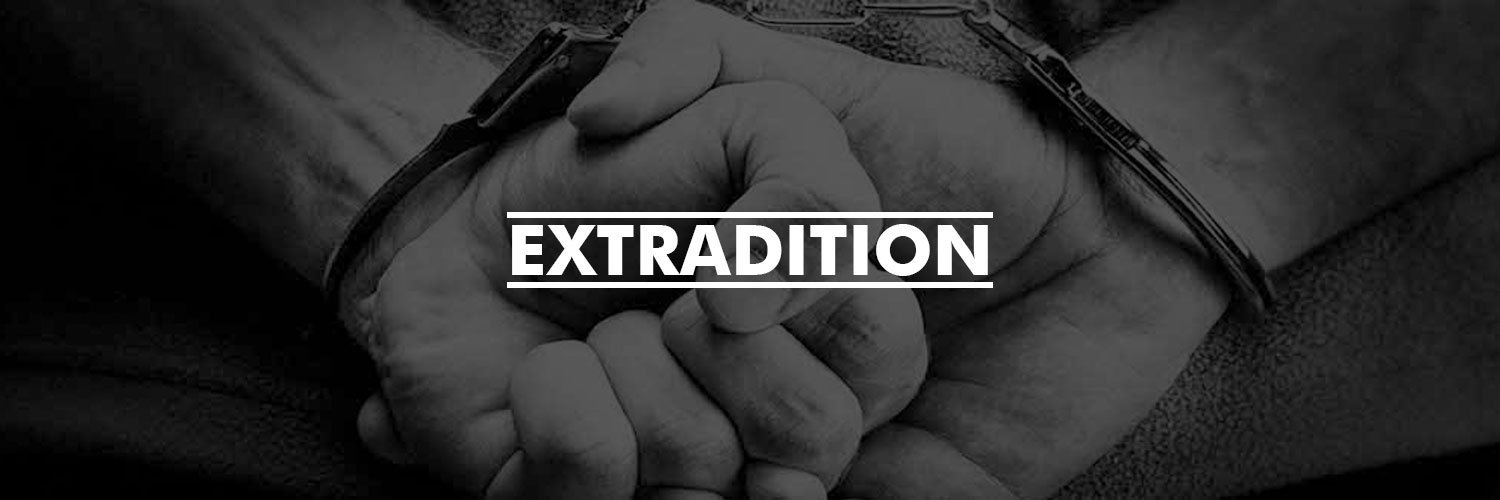The Formidable Challenges of Fighting Extradition from the United States
The Extradition Process:
Request for extradition
The extradition process begins when the requesting country submits a formal request for extradition to the U.S. Department of State. The request comes through diplomatic channels, often from the requesting country’s embassy in Washington, D.C.
The requesting country usually also requests that a provisional arrest be made by the U.S. Department of Justice so that the fugitive remains in the United States pending extradition proceedings.
Review by the Department of State
Upon receipt of a request for extradition and/or provisional arrest, the Department of State initiates a review of the request. It first confirms that there is a valid treaty in place between the requesting country and the United States. It next ensures that the charged offense is an extraditable offense and that the underlying documents are in order and properly certified. After the review is complete, the Department of State forwards the request to the International Affairs Office at the Department of Justice.
The Department of Justice then conducts its own review and, if found to be an appropriate request, forwards the request to the appropriate federal district that has jurisdiction over the fugitive. An Assistant United States Attorney within the district is assigned to the case and obtains a warrant for the fugitive’s arrest. The fugitive is arrested pursuant to the warrant and brought before a federal judge, usually a magistrate judge.
Extradition hearing and certification
After the fugitive’s initial appearance in federal court other pretrial hearings are held, an extradition hearing pursuant 18 U.S.C. § 3184 is scheduled and heard to determine if the fugitive is extraditable. If the judge finds that the fugitive is extraditable, the fugitive is certified for extradition and the request is sent back to the Department of State to determine whether the fugitive should be surrendered to the requesting country. If it’s determined that the fugitive should be surrendered, the transit of the fugitive is carried out in accordance with the applicable extradition treaty.
Requirements of Certification
It’s important to know that extradition is a bifurcated process involving both the executive and judicial branches of government. While extradition is primarily an executive function, the court has a specially defined and important role. Specifically, the court is authorized by statute to hold a hearing at which it determines whether to certify to the Department of State that the evidence provided by the requesting country is “sufficient to sustain the charge.” 18 U.S.C. § 3184.
There are five requirements that the court must find to certify that a fugitive is extraditable. The first four requirements are mostly ministerial in nature and rarely contestable because they are easily met. These include: 1) the judicial officer is authorized to conduct the extradition proceedings, 2) the court has jurisdiction over the fugitive, 3) the applicable treaty is in full force and effect, and 4) the charged offense is an extraditable offense under the applicable treaty.
The fifth and final requirement for certification is that there is sufficient evidence to support a finding of probable cause as to each charged offense. Probable cause is established if it would cause a prudent person to believe that the fugitive committed the charged offense.
Challenging Probable Cause
Challenging probable cause is one of few defenses available to fugitives facing extradition. An extradition hearing is not a criminal proceeding. It is governed by the general extradition statute (18 U.S.C. § 3184) and provisions of the applicable treaty. The federal rules of evidence do not apply at an extradition hearing, making hearsay and other types of suspect evidence admissible. Further, certification may properly be based entirely on the documentary evidence and information provided by the requesting country. Also, live witness testimony is not required or usually presented at an extradition hearing.
The federal rules of criminal procedure also do not apply at an extradition hearing. As such, a fugitive has no right to discovery, no right to cross-examine witnesses, and no right to a speedy trial. Further, the Fifth Amendment right against double jeopardy does not apply to successive extradition proceedings. Also, the exclusionary rule is not applicable and a fugitive does not have the right to confront their accusers.
Additionally, a fugitive may not introduce evidence that contradicts the evidence submitted by the requesting country, but may only introduce explanatory evidence. Because of this, courts routinely reject technical and affirmative defenses in extradition hearings.
Although a fugitive’s right to challenge and present evidence is severely restrained at an extradition hearing, challenging probable cause is still a viable defense to extradition. The success of a probable cause challenge will depend on the strength of the requesting country’s evidence, the ability of the fugitive to introduce relative and impactful explanatory evidence, and the preparedness and skill of the fugitive’s attorney.
Other Defenses to Extradition
In addition to challenging probable cause, there are some other areas where a defense to extradition may be asserted. One of these is the passage of time or the expiration of the statute of limitations. Some United States extradition treaties require that a request for extradition be submitted within a specified time period after commission of the charged offense. Also, extradition should be denied if the statute of limitations for the charged offense has lapsed under the requesting country’s laws.
Another possible defense is double jeopardy. Similar to our own Constitution’s prohibition against double jeopardy, many United States extradition treaties also prohibit extradition where a fugitive has already been tried for the charge offense. (This differs from double jeopardy as applied to successive extradition proceedings noted above.)
A final possible defense is extraterritoriality. Many United States treaties preclude extradition where the charged offense was committed outside of the requesting country’s jurisdiction. A caveat of this defense is that because the United States has increasingly sought the extradition of foreign nationals for extraterritorial offenses, foreign extradition requests that involve extraterritorial offenses are likely to be met with less resistance in American courts.
Granting of Bail in an Extradition Case
Federal extradition statutes do not provide for bail. Further, the Bail Reform Act does not apply because, as noted, an extradition proceeding is not a criminal case. Case law has generally established that bail should be granted in an extradition proceeding only in the most pressing circumstances and when requirements of justice demand such.
Presumption against bail
Unlike in criminal cases, there is a presumption against bail in an extradition hearing. Courts have held that the release of a detained fugitive awaiting extradition is antithetical to the process. That is, when a foreign country makes a proper request pursuant to a valid extradition treaty, the United States is obligated to deliver the person sought, and to release this person may make the obligation impossible to fulfill. Honoring international agreements and reciprocity are additional factors cited by courts in upholding a presumption against bail.
Although there is a strong presumption against bail in an extradition hearing, it is not precluded by law and courts will grant bail in some cases. For a fugitive to be released on bail, it must be found that they are neither a flight risk or a danger to the community and special circumstances exist.
Flight risk and danger to the community
In evaluating a fugitive’s flight risk and danger to the community, courts will consider factors that are commonly considered in bail hearings. As to flight risk, these include factors such as the fugitive’s financial means, ties with foreign countries, and incentive to flee based on the severity of the offense. With respect to danger to the community, these factors include the seriousness of the charged conduct, the fugitive’s criminal history, and the fugitive’s mental health condition.
Special circumstances
If a fugitive is able to establish both that they are not a flight risk and are not a danger to the community, they must further establish that special circumstances exist in their case. These special circumstances must go beyond what is commonly thought of as reasonable assurance of appearance. In other words, they must be extraordinary and not applicable to all fugitives facing extradition.
There are no enumerated factors that give rise to special circumstances. Instead, the finding of special circumstances is highly case-specific and within the discretion of the court. Further, mindful of the strong presumption against bail, courts generally require a confluence of factors to establish special circumstances as opposed to any single consideration.
When formulating a comprehensive argument requesting bail in an extradition hearing, defense attorney and defendant’s must be able to show that a number of important considerations exists and the administration of fair justice supports the fugitive’s release pending proceedings. These can include, but are not limited to, the following:
- The complexity of the charged conduct and the fugitive’s need to consult with counsel and to participate in the pending litigation
- The fugitive’s good character, accomplished background, and close and open community ties
- Family circumstances including reliance on the fugitive for financial support, childcare, and other familial obligations
- The fugitive’s poor physical condition and medical treatment requirements
- The fugitive’s professional status and stature in the community
- The fugitive’s American citizenship and lack of close ties to any foreign country including the requesting country
- The availability of electronic monitoring or other flight mitigation measures
- The defendant’s age, state of mind, and emotional development at the time of the charged conduct
- The passage of time and changed circumstances since the time of the charged conduct
It must be stressed again that none of the above or similar factors alone are sufficient to support bail in an extradition case. The defendant’s challenge is to present as many compelling factors as possible in a persuasive and impactful manner to demonstrate the uniqueness of the case.
Conclusion
Fighting extradition from the United States can feel like, and in some respects is, a herculean task. The statutes, treaties, and case law governing both certification and bail in extradition hearings establish strong presumptions in favor of the government. Still, all matters relating to the extradition process are argued sui generis thereby allowing defense attorneys and defendants to present all reasonable arguments and have their cases decided on its own unique merits. Although still a daunting task, a fugitive increases their chance of successfully fighting extradition and/or being granted bail by hiring an experienced federal criminal defense attorney who understands the complexities of extradition law and can forcefully present compelling arguments to the court.

